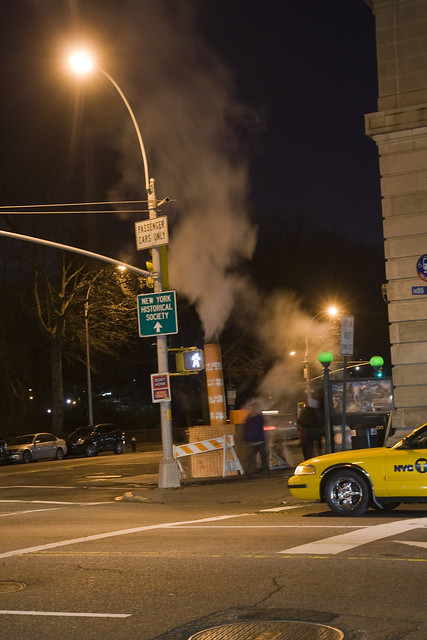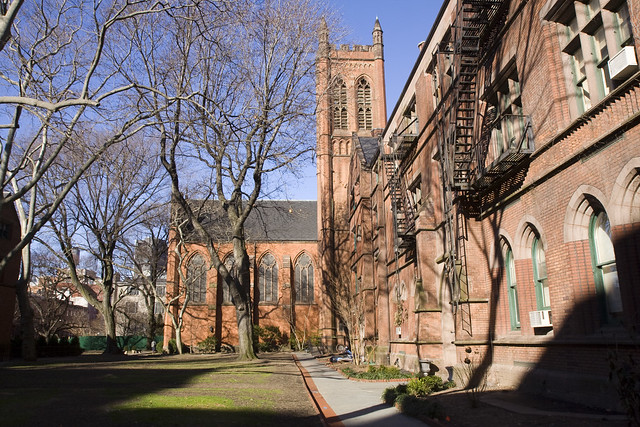
Upper West Side, New York City. February 7, 2012
365 Part Deux








 At LTSP, one of the first year classes is a survey course on Christian history. Over one semester, we cover 2000 years of history. The class isn’t designed to dig deep into many aspects of Christian history, rather, it’s there to lay some groundwork for the historical elements of the other courses that are in the pipeline (Confessions, liturgy, patristics, liberation theology, etc etc). It wasn’t the greatest course in the world (I found the TA to be weak sauce) but I liked the professors and loved that they didn’t seem to mind that I connected failed modern day Lutheran evangelism towards Latinos to the Marburg Colloquy of 1529. Anyone who will let me do that is A-OK.
At LTSP, one of the first year classes is a survey course on Christian history. Over one semester, we cover 2000 years of history. The class isn’t designed to dig deep into many aspects of Christian history, rather, it’s there to lay some groundwork for the historical elements of the other courses that are in the pipeline (Confessions, liturgy, patristics, liberation theology, etc etc). It wasn’t the greatest course in the world (I found the TA to be weak sauce) but I liked the professors and loved that they didn’t seem to mind that I connected failed modern day Lutheran evangelism towards Latinos to the Marburg Colloquy of 1529. Anyone who will let me do that is A-OK.
And speaking of books, one of the required books for the course was A Short World History of Christianity written by Dr. Robert Bruce Mullin who just happens to be one of the professors in GTS’ history department and part of a seminary that requires three semesters of Christian history survey work. So, this morning, at the bright early hour of 11 am, I walked into the newly renovated (and unfinished) auditoriums on campus and began my studies under a professor who I had already ready to cover Church history post 1668 from an Anglican perspective.
It’s always weird to meet a writer of a textbook because I quickly discover that they always sound and teach just like their book. Since I’ve already read Dr. Mullin’s book a few times, I basically witnessed his book come to life today. Sure, there were a few more details, and he spoke faster than I can usually read, but, there it was. It felt strange – like I already knew a little bit about him while he knew nothing about me. He doesn’t even know who I am. Though I’m sure he’ll probably find out eventually.
I’m not particularly sure how I’ll end up liking this class mostly because it is from a perspective that I’m not really that interested in and that the professor, at least based on today, seems to like using “Lutherans” as code word for “other religious groups.” And I don’t really think he understands Lutheran theology as I would like. And one of the books we’re asked to read (and possibly write a paper on) is Spener’s Pia desideria (yay pietism). And….well….Hmm.
If this blog just becomes me complaining about my history class, feel free to slap me.